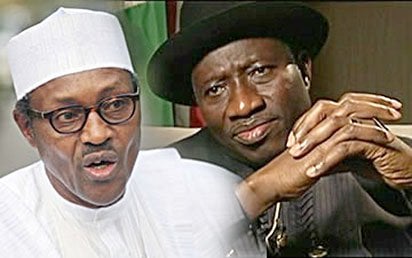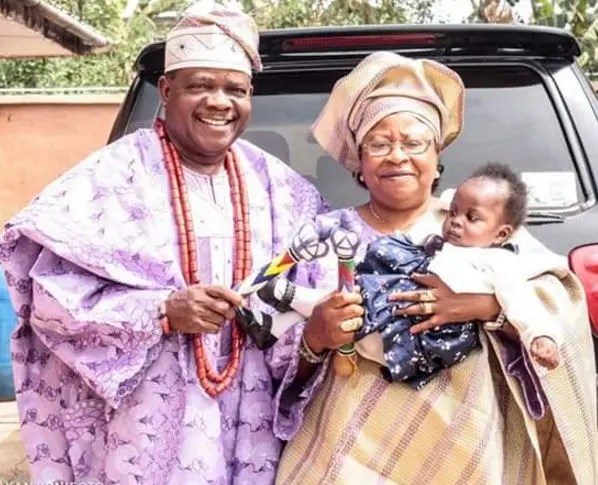
2015 Elections: Which Messiah will Deliver Education? No one is talking about cancelling the outrageous fee hikes across many universities. All we have heard is talk about transforming Nigerian education into that befitting the 21st century.
Buhari + Jonathan
Ever since campaigns for the 2015 elections began, education has been mentioned in bits and pieces by candidates of the ruling People’s Democratic Party, PDP, and its main opposition, the All Progressives Congress, APC. However, no educational issue has been given as much attention as the ‘certificate saga’ associated with General Muhammad Buhari, the APC’s presidential candidate. For a nation that cares so much about a 53-year old certificate, it only seems natural that education would be at the forefront of burning issues in a time like this. Stakeholders in the sector worry that this is not the case.
“This is a matter which has bothered us sorely since the commencement of political campaigns;” said Dr. Chibuzo Asomugha, the national President of the Academic Staff Union of Polytechnics, ASUP, “we have monitored the expressed programmes of the vocal candidates and we are yet to receive reassuring signals of a serious focus on the education sector. While one party is preoccupied with reeling out its perceived landmark impact on education, the other party is not even paying the subject any significant attention. It appears the parties and their candidates are more concerned with the seemingly more exigent issues of security and the economy and may not have considered education as a captive subject matter for maximum electoral capital.”
See also:See Buhari WAEC Result Here [Photo].
Similar Posts:
- Universal School of Aviation (USA) Matriculation Ceremony Schedule
- Price of WAEC GCE Scratch Cards & Selling Points
- 45,000 Apply for 2,000 Teaching Positions in Ogun
- FG Suspends Evaluation of Degrees from Benin and Togo
- Universal School of Aviation (USA) Convocation Ceremony Schedule
Although the vocal focus might be on security, the economy and job creation, both parties do give education a significant mention in their manifestoes. The APC in its ‘Roadmap for free, relevant quality education says that the party will: “Make the right of every Nigerian child to receive a free, relevant and quality education a reality, based on free and comprehensive primary and secondary education; Provide free tertiary education to students pursuing Science and Technology, Engineering and Math (STEM); Provide free tertiary education to education majors and stipends prior to their employment as teachers; Create incentives and dedicate special attention to the education of girls.
The party also promises to “ensure that every child attending primary school is properly nourished and ready to learn by providing a free meal a day; Invest in better equipping and staffing Teacher Training Colleges and provide financial and progression incentives to attract and retain good teachers; Revamp and restructure education curricula from primary to tertiary levels with a view to ensuring students acquire the right skills for employment, entrepreneurship and innovation; Prepare young adults for the jobs of the future by expanding the focus on science and technology at our colleges and universities; Improve the ability of people to gain employment in a variety of fields through greater access to technical and vocational training.
The PDP Manifesto states that “Education is an important social instrument for national unity amongst the diverse peoples of Nigeria,” and that “the party in government shall ensure that the educational system is improved upon; Ultimately provide free, functional education at all levels; Integrate into the formal education system the political education of the citizenry with emphasis on the provision of the Constitution, the state and democratic principles;Foster and expand education all levels and fields of knowledge; and encourage private and voluntary organizations to establish schools subject to compliance and adherence to existing government policies.”
The ruling party plans to do these in an eighteen point strategy, which includes the promotion of pre-primary education by encouraging the establishment of private Nursery schools in such a way that every Nigerian child shall have the opportunity to start education at the nursery levels; the Provision of free and compulsory primary education; Free and compulsory junior secondary education; and Free qualitative senior secondary education” among others.
But for the National Coordinator of the Education Rights Campaign, Mr. Hassan Soweto, both manifestoes are just talk, and not enough talk at that. He told Saturday School Life, SSL: “In my opinion, none of these candidates have paid due attention to education in their manifestoes. There has been no mention of specific policies and strategies to improve the quality of education and make it more accessible. No one is promising 26% budgetary allocation according to UNESCO’S stipulation.
No one is talking about cancelling the outrageous fee hikes across many universities. There is no talk about eradicating the commercialization of the education system. There are no plans to put the 10.5mn out of school children back in school. All we have heard is talk about transforming Nigerian education into that befitting the 21st century.
Nothing concrete has been said. Even with the new universities that have been built, there is still no improvement in the admission crisis. This is despite the fact that tertiary education is not even readily affordable. It is not a question of who wins, but the policies that anyone who wins the elections will come up with.”
This is in line with the ASUP boss’ assertion that “the trajectory of the degeneration in our education sector goes beyond the present administration, and indeed, goes beyond any single government. A serial layering of policy confusion, weak political will, corruption, and lack of diligence has brought us to the present sorry state.
In fairness to the present at the centre, funding to the sector has recorded some increase, but still not on a scale that could significantly ameliorate the deep rot that has festered in the system. We will continue to insist that for the decay to be stemmed and perhaps reversed, the political class must muster the will to set education on a strong footing.
For instance, government, any government, must commit to devoting at least 26% of the nation’s annual budget to education; government must develop and pursue a developmental programme for basic and secondary education; government must set a global agenda for higher education.”
But Mr. Monsur Adeyemo, former Zonal Coordinator at the National Association of Nigerian Students, NANS, believes that the future of education is inextricable tied to whoever emerges as President after the 2015 elections. He said: “The present administration has not kept its promise to us with regards to education. Nothing anybody says will convince me of that fact. And as we speak, there is still crisis in the education sector. And people all over the country are clamouring for change.
All the sectors are intertwined. I believe that one of the reasons why education has not been properly funded is because security has gulped a lot of money. So anyone who can handle the issue of insecurity in the country would be able to salvage money for proper funding of education. The crux of every administration is its leadership, and the fates of the different sectors depend largely on the man at the helm of affairs.”
The National Treasurer, Academic Staff Union of Universities, Dr. Demola Aremu, also had a similar view. He told SSL: “Any good government will focus on education as a priority. This has not been the case for the present administration. You can see it in the meagre allocations to education for the past few years. ASUU was on strike in 2013 and entered into negotiations with the government. This same government made some commitments during those negotiations that are yet to be implemented as we speak.
It was the same issue with ASUP. We definitely need a change because this present government has taken us nowhere in education. Democracy is about giving someone a chance to prove himself, and if they do not succeed we get to change them in the next elections. I think we should give Buhari a chance. If he wins and does not succeed in rescuing the sector, then we can vote him out.
One might say that Buhari himself has not spoken a lot about his plans for the sector, but the APC manifesto has a lot to say about education. Look at the states run by the APC, check out their education status, and look at the states run by the PDP and do the same. It is beyond just building universities in places you need to garner political support. How well are the existing schools being funded?”
Soweto however argues that “where the PDP has failed, the APC has also failed. The Lagos State University, for example was until recently, the most expensive government school in the country where students were paying between N150, 000 and N350,000 yearly. It took three years of struggle before this fee hike was reversed. So if we are waiting for any of these candidates to be our messiah in the education sector, it will not happen. In the aftermath of the elections and whoever might emerge as leader, we as students, parents and workers in the education sector must continue to be united in our struggle for our rights to education.”
The Senate President of the National Association of Polytechnic students, Mr. Adeyemi Lukman, argued that although both parties stressed education in their manifestoes, the action plans are not stated clearly enough. Although he agrees that the present Minister of education, “Mallam Ibrahim Shekarau, a competent hand appointed by the President, brought some calm into the sector, polytechnic students have nothing to write home about concerning this present administration.” He added: “I do not know whether or not the APC will bring the change we need in the sector, but I will say that change is inevitable for Nigerians come 2015, not just in education, but in all the sectors. (Vanguard)



